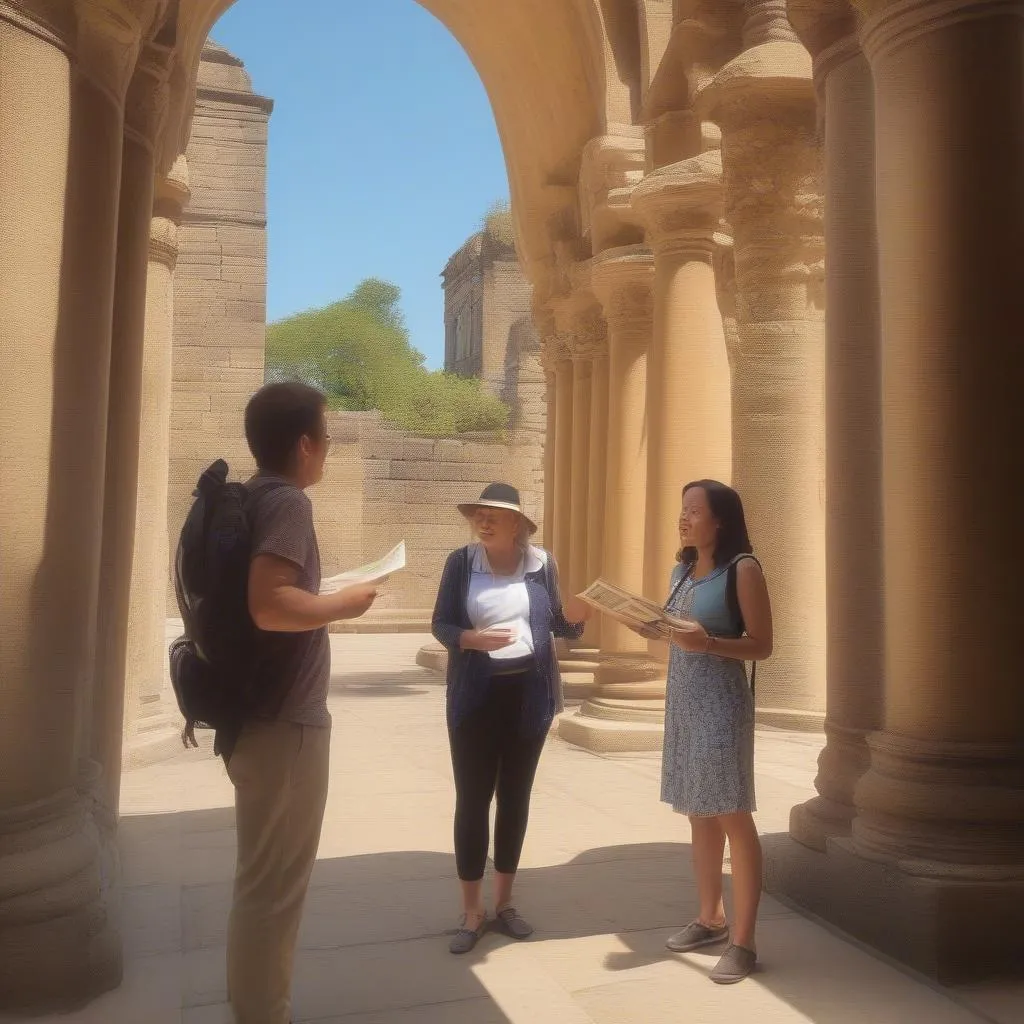“The world is a book and those who do not travel read only one page.” – Saint Augustine.
Have you ever dreamt of exploring ancient ruins in Greece, navigating bustling markets in Marrakech, or sipping coffee with a view of the Eiffel Tower? Learning English for tourism can be your passport to these incredible experiences and countless others. It opens doors to new cultures, facilitates smoother travels, and can even boost your career prospects.
Why is Learning English for Tourism Important?
English is the language of international travel. From booking flights and hotels to ordering food and asking for directions, English will be your trusty companion on your adventures.
Communicate with Ease
Imagine trying to explain your dietary restrictions in a local restaurant in Thailand or asking for help with a lost passport in rural Vietnam. These situations, while potentially stressful, can be made much easier with a basic understanding of English.
Enhance Your Travel Experience
Knowing English allows you to delve deeper into local cultures. You can engage in meaningful conversations with locals, understand historical context at significant landmarks, and truly immerse yourself in the destination’s essence.
Boost Your Career Opportunities
The tourism industry thrives on effective communication. Whether you’re interested in working as a tour guide, travel agent, or hotel manager, fluency in English is often a prerequisite.
How to Learn English for Tourism
Immerse Yourself
Language Exchange: Connect with native English speakers online or in your local community.
Movies & TV Shows: Watch English language movies and TV shows with subtitles. Pay attention to common phrases and slang.
Music: Listen to English music and try to sing along.
Focus on Practical Vocabulary and Phrases
Travel Essentials: Learn key phrases related to booking flights, hotels, transportation, and dining.
Safety and Emergencies: Familiarize yourself with essential phrases for medical help, directions, and reporting lost items.
Cultural Sensitivity: Research common customs and etiquette in the countries you plan to visit.
Practice, Practice, Practice!
Conversation Partners: Find a language exchange partner or tutor to practice speaking English regularly.
Role-Playing: Practice common travel scenarios like checking into a hotel or ordering food.
Travel Blogs and Forums: Engage in online communities and forums related to travel.
Tips for Learning English for Tourism
- Don’t be afraid to make mistakes. Even native speakers make mistakes! The key is to keep practicing and learning from your errors.
- Set realistic goals. Don’t expect to become fluent overnight. Start with small, achievable goals and gradually increase the difficulty.
- Make it fun! Choose learning methods that you enjoy. Watch movies, listen to music, and read books that interest you.
 Engaging in a conversation with locals
Engaging in a conversation with locals
 Engaging in a conversation with native English speakers
Engaging in a conversation with native English speakers
 Tour guide explaining historical facts to a group of tourists
Tour guide explaining historical facts to a group of tourists